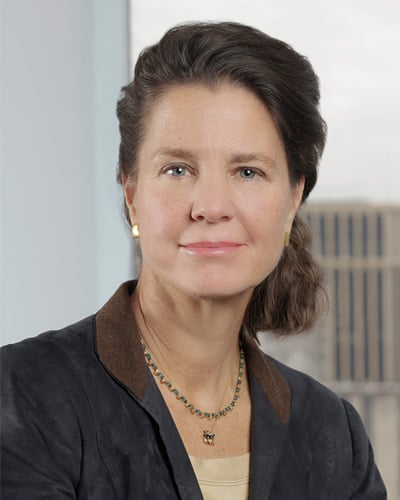The media has been closely following developments in the widening probe spearheaded by New York Attorney General Andrew Cuomo into the $85 billion student loan industry. At its core, the investigation concerns the extent to which colleges and universities - and administrators at these institutions - have undisclosed financial relationships that may have caused them to steer students toward certain lenders even where other lenders may have offered more favorable rates and terms. With its focus on alleged financial conflicts of interest and improper steering of potential customers, this new investigation follows in the path of other wide-ranging, multi-year investigations conducted by Mr. Cuomo’s predecessor, Eliot Spitzer, into the financial services and insurance industries.
In a clear indication of the government’s commitment to this investigative effort, Mr. Cuomo has assigned four Assistant Attorneys General to conduct the probe in New York; meanwhile, Attorneys General in California, Connecticut, Minnesota, and Ohio have recently announced that they likewise intend to commence their own investigations. With substantial settlements already announced, these inquiries are likely to continue in earnest for some time and ultimately to span a number of months, if not years.
In this environment, prudence dictates that colleges and universities should promptly review their own practices in this area and then, as necessary, take appropriate steps to implement corrective actions and/or enhanced compliance measures. The specific practice that has garnered the most attention during the early stages of this inquiry are reports that a number of lenders offered inducements to colleges and universities, and to financial aid officers, in return for designation as “preferred” or “exclusive” lenders. Since an estimated 90% of students take out loans from their school’s preferred lender, such a designation is valuable to lenders. In some instances, according to published reports, lenders made payments to obtain “preferred” lender status, ranging from .25 % to 2% of the aggregate amount lent to students at a given school. Investigators are now examining whether lenders provided inducements to schools, often in the form of monetary payments, to steer students away from direct federal loan programs - programs which reportedly are often less costly for students.
As part of this probe, investigators are also closely examining the financial relationships between individual financial aid administrators and lending institutions. The investigation already has revealed that administrators at a handful of universities owned stock in one lender, Student Loan Xpress. Other potentially troubling relationships include the following practices by lending companies: hiring financial aid officers as consultants; steering business to outside entities owned by university administrators; paying financial aid officers to serve on advisory boards; or hosting conferences at posh locations for university officials. Allegations of this nature bring into sharp focus the need for schools to examine both the content and effectiveness of their existing compliance policies.
To date, Mr. Cuomo has obtained total settlements in excess of $3 million from a small number of prestigious universities requiring, among other measures, the compensation of students who borrowed from the lenders in question and implementation of certain compliance measures. Mr. Cuomo also has obtained settlements with Citibank and Sallie Mae totaling more than $4 million and imposing compliance measures expressly designed to eliminate improper inducements, such as the giving of trips or other gifts to university or college personnel. Thirteen additional lenders have received subpoenas or formal requests for information from the New York Attorney General. While Mr. Cuomo’s investigation has focused on claims of deceptive business practices and similar civil theories, he has not ruled out the possibility of criminal charges.
Indeed, in a March 2007 letter to more than 400 schools nationwide, Mr. Cuomo outlined several “problematic practices,” including financial “kickbacks” based on a percentage of a company’s loans to students; gifts and trips to school officials; payments to schools to discourage or end the use of direct federal loan programs; and other similar practices. The settlement results obtained to date and the close financial ties between lenders and schools exposed thus far predictably will spur further investigative activity by not only Mr. Cuomo, but also other Attorneys General and U.S. Attorneys around the country. Legislation has also now been proposed in New York to address practices exposed as a result of this investigation.
As the investigation continues, schools that take the initiative and examine their own individual practices will be at a distinct advantage if and when an enforcement inquiry is initiated into their specific practices. Universities and colleges thus should consider undertaking a prompt and thorough internal review into their financial relationships with student loan companies, any financial ties their administrators may have to such companies, and the overall strength of their compliance policies in this area. It may also be helpful for schools that did have financial relationships with lenders to analyze and document how the arrangements may in fact have helped the school’s student aid program (for example, by providing revenue for the school to use as grants in student financial aid packages or to improve student aid services).
Ropes & Gray, in addition to its extensive colleges and universities practice, has a nationally recognized government enforcement practice and a great deal of experience in dealing with the New York Attorney General’s Office and other AG offices and U.S. Attorneys’ offices around the country. Our government enforcement practitioners, many of whom are former federal prosecutors, are experienced in conducting internal reviews, advising on the implementation of appropriate compliance measures, and responding to government enforcement inquiries and proceedings. If you seek guidance in this area please contact your regular counsel at Ropes & Gray.
Authors


Stay Up To Date with Ropes & Gray
Ropes & Gray attorneys provide timely analysis on legal developments, court decisions and changes in legislation and regulations.
Stay in the loop with all things Ropes & Gray, and find out more about our people, culture, initiatives and everything that’s happening.
We regularly notify our clients and contacts of significant legal developments, news, webinars and teleconferences that affect their industries.
